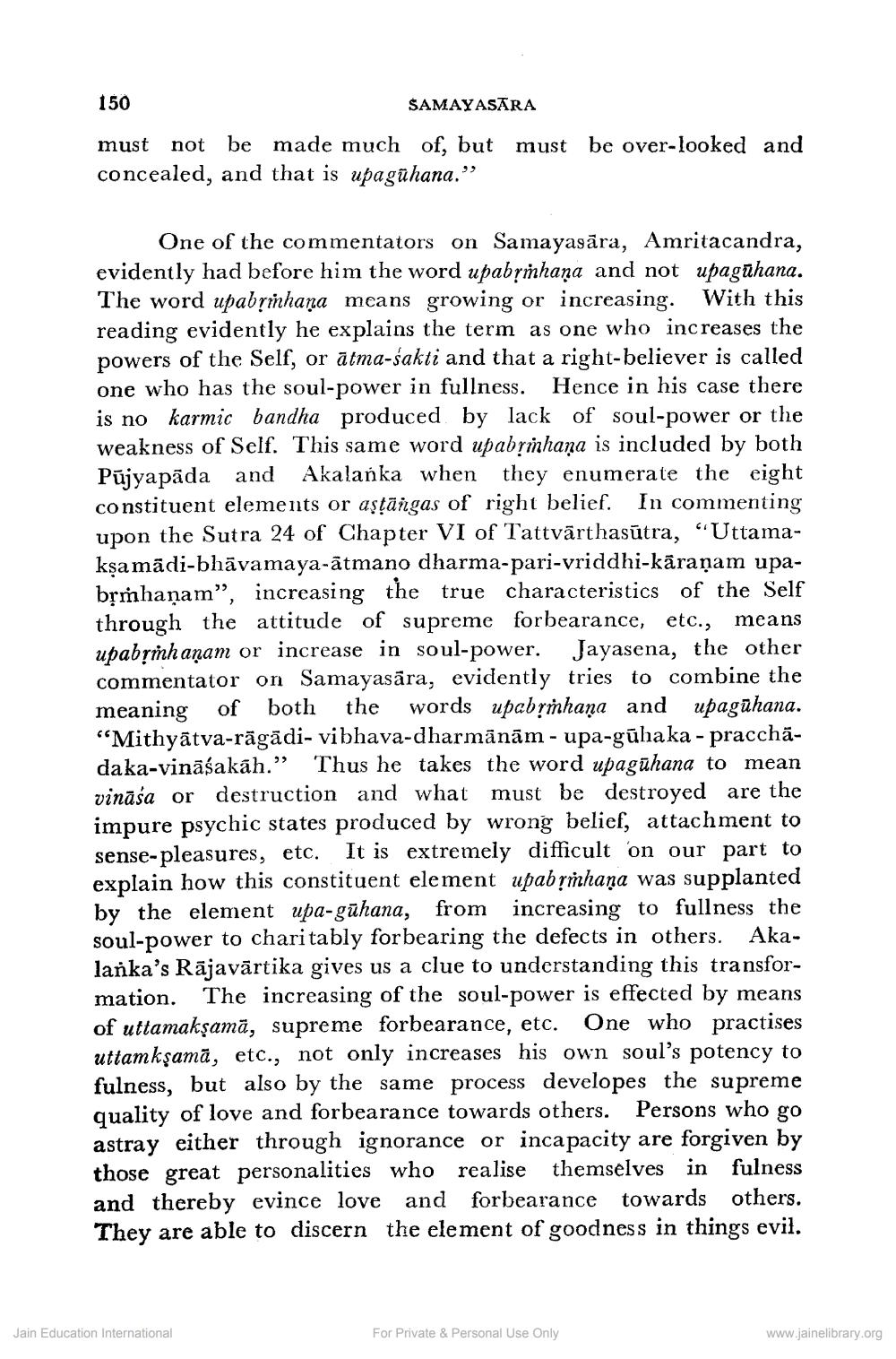________________
150
SAMAYASARA
must not be made much of, but must be over-looked and concealed, and that is upagūhana.”
One of the commentators on Samayagāra, Amritacandra, evidently had before him the word upabrîhana and not upagahana. The word upabrîhana means growing or increasing. With this reading evidently he explains the term as one who increases the powers of the Self, or ātma-sakti and that a right-believer is called one who has the soul-power in fullness. Hence in his case there is no karmic bandha produced by lack of soul-power or the weakness of Self. This same word upabrîhana is included by both Pūjyapāda and Akalanka when they enumerate the eight constituent elements or astāngas of right belief. In commenting upon the Sutra 24 of Chapter VI of Tattvārthasūtra, “Uttamaksa mādi-bhāvamaya-ātmano dharma-pari-vriddhi-kāraṇam upabệmhaņam”, increasing the true characteristics of the Self through the attitude of supreme forbearance, etc., means upabrîhanam or increase in soul-power. Jayasena, the other commentator on Samayasāra, evidently tries to combine the meaning of both the words upabrîhana and upagūhana. “Mithyātva-rāgādi- vibhava-dharmānām - upa-gūhaka - pracchādaka-vināśakāh.” Thus he takes the word upagūhana to mean vināśa or destruction and what must be destroyed are the impure psychic states produced by wrong belief, attachment to sense-pleasures, etc. It is extremely difficult on our part to explain how this constituent element upabỊmhaņa was supplanted by the element upa-gūhana, from increasing to fullness the soul-power to charitably forbearing the defects in others. Akalanka's Rājavārtika gives us a clue to understanding this transformation. The increasing of the soul-power is effected by means of uttamakşamā, supreme forbearance, etc. One who practises uttam kşamā, etc., not only increases his own soul's potency to fulness, but also by the same process developes the supreme quality of love and forbearance towards others. Persons who go astray either through ignorance or incapacity are forgiven by those great personalities who realise themselves in fulness and thereby evince love and forbearance towards others. They are able to discern the element of goodness in things evil.
Jain Education International
For Private & Personal Use Only
www.jainelibrary.org




